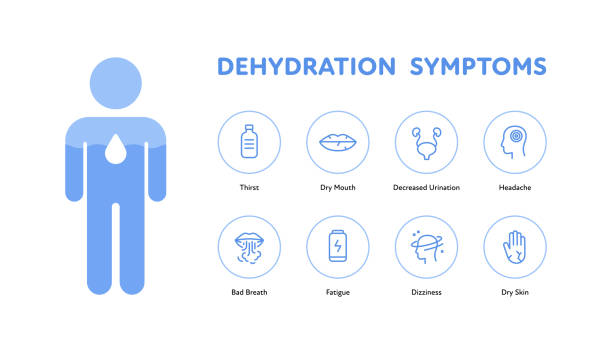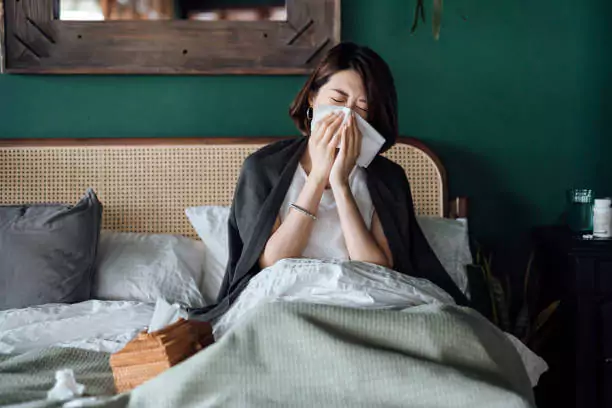Ayurveda, Blog, health tips
Understanding and Alleviating Winter Headaches through Ayurveda: A Holistic Approach
As the winter season descends, many individuals find themselves grappling with an unwelcome companion – headaches. The colder temperatures, dry air, and other seasonal factors can contribute to an increased prevalence of headaches during winter. In this article, we explore the top 7 reasons behind winter headaches and delve into preventive measures through the ancient wisdom of Ayurveda.
In this article, we explore the top 7 reasons behind winter headaches and delve into preventive measures through the ancient wisdom of Ayurveda.
Dehydration:
During winter, people often forget to drink an adequate amount of water due to the misconception that dehydration is only a concern in the heat. However, cold weather can lead to increased fluid loss through respiration and less noticeable perspiration. Dehydration can trigger headaches and exacerbate existing conditions.

Ayurvedic Solution:
In Ayurveda, staying hydrated is considered fundamental for overall well-being. Warm water, herbal teas, and nourishing soups are recommended to maintain proper hydration levels during the winter months.
Vata Imbalance:
According to Ayurveda, the winter season is characterized by an increase in the Vata dosha, which is associated with qualities like dryness, coldness, and lightness. An imbalance in Vata can manifest as headaches, joint pain, and other discomforts.

Ayurvedic Solution:
To balance Vata, Ayurveda suggests incorporating warm and grounding foods into the diet, such as cooked vegetables, whole grains, and herbal teas. Additionally, regular oil massages, especially with sesame oil, can help pacify Vata and alleviate headaches.
Cold and Sinus Issues:
Winter often brings a surge in cold and sinus infections. Congestion and pressure in the sinuses can lead to tension headaches.

Ayurvedic Solution:
Nasya, an Ayurvedic practice involving the administration of herbal oils or medicated nasal drops, can be beneficial for alleviating sinus congestion. Steam inhalation with herbs like eucalyptus or camphor can also help clear the nasal passages.
Reduced Sunlight Exposure:
With shorter days and longer nights, individuals may experience reduced exposure to sunlight. This can lead to a drop in serotonin levels, triggering headaches in susceptible individuals.

Ayurvedic Solution:
Ayurveda emphasizes the importance of exposure to natural sunlight. Taking short walks during daylight hours, practicing outdoor activities, and incorporating foods rich in vitamin D can help maintain optimal serotonin levels.
Stress and Seasonal Affective Disorder (SAD):
Winter can bring about increased stress levels and, for some, Seasonal Affective Disorder, a type of depression that occurs seasonally, often in winter.

Ayurvedic Solution:
Ayurveda advocates stress management techniques such as yoga, meditation, and pranayama to maintain mental and emotional well-being. Additionally, incorporating adaptogenic herbs like ashwagandha can help the body adapt to stress.
Dietary Triggers:
The holiday season is synonymous with indulgent foods and beverages. However, certain foods like caffeine, alcohol, and processed sugars can act as triggers for headaches.

Ayurvedic Solution:
Ayurveda encourages a balanced and mindful approach to eating. Opting for warm, nourishing, and easily digestible meals while minimizing the intake of stimulants and processed foods can help prevent headaches.
Poor Sleep Quality:
The colder temperatures can disrupt sleep patterns, leading to poor sleep quality, which is a common trigger for headaches.

Ayurvedic Solution:
Establishing a consistent sleep routine and creating a conducive sleep environment are essential in Ayurveda. Herbs like valerian or chamomile tea can be beneficial in promoting relaxation and better sleep.
Conclusion:
By understanding the reasons behind winter headaches and adopting Ayurvedic principles, individuals can take a holistic approach to prevent and alleviate these discomforts. Embracing the wisdom of Ayurveda not only addresses the symptoms but also promotes overall well-being during the winter season.



